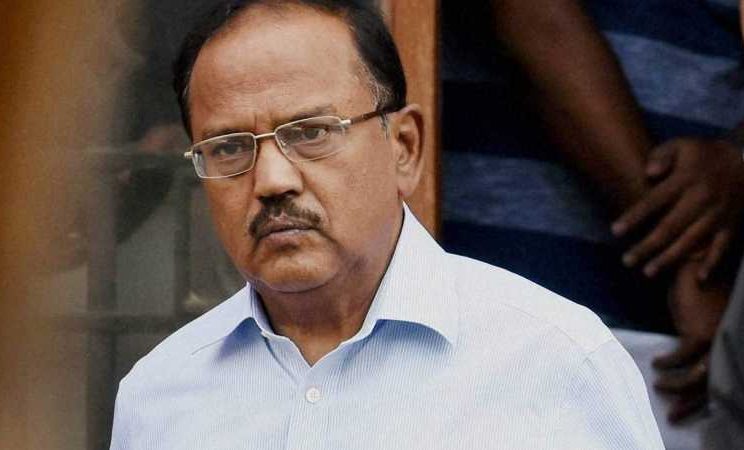
NSA Doval holds trilateral meeting with US, Saudi Arabia to discuss 'shared vision'

US National Security Advisor Jake Sullivan had a meeting with his Indian counterpart Ajit K Doval in Saudi Arabia on Sunday (May 7), the White House said, adding that the two leaders were scheduled to meet again in Australia later this month on the sidelines of the Quad Summit.
This is the first meeting between Doval and Sullivan after they launched the ambitious India US ICET (Initiative on Critical and Emerging Technology) dialogue in Washington in January.
White House statement
“National Security Advisor Jake Sullivan met with Saudi Prime Minister and Crown Prince Mohammed bin Salman, UAE National Security Advisor Sheikh Tahnoon bin Zayed Al Nahyan, and National Security Advisor of India Ajit Doval on May 7 in Saudi Arabia to advance their shared vision of a more secure and prosperous Middle East region interconnected with India and the world,” the White House said on Sunday (May 7) in a readout of the meeting.
“Sullivan also held bilateral meetings with the Crown Prince, Sheikh Tahnoon, and Mr. Doval to discuss bilateral and regional matters. He looks forward to further consulting with Mr. Doval on the margins of the Quad Summit later this month in Australia,” the statement said.
Also read: NSA Doval meets members of USISPF, discuss cooperation in defence space and cybersecurity
The statement said that during their meeting with Crown Prince Mohammed, the US NSA reviewed significant progress in talks to further consolidate the now 15-month long truce in Yemen and welcomed ongoing UN-led efforts to bring the war to a close.
“Mr. Sullivan thanked the Crown Prince for the support Saudi Arabia has provided to US citizens during the evacuation from Sudan. The four delegates agreed to maintain regular consultations and follow up on the matters discussed throughout the day,” the White House said.
Proposal for major rail network in West Asia
According to various news reports, the security advisors of India, the US and UAE discussed a ground-breaking proposal put forward by the US to link countries in West Asia through a rail network, to be set up with Indian expertise, and further connect the region with South Asia (including India) by sea.
This is one of the important initiatives the US is planning to counter China’s influence in the Middle East through its Belt and Road vision.
Experts in India believe that it would be in India’s interest to take this project forward for three important reasons.
The first reason is to counter China’s growing influence in the West Asian region, an indication of which is the recent renewal of ties between Saudi Arabia and Iran facilitated by China. The proposed rail, road, and sea network in the region would help India in the movement of crude oil, and also be of benefit to the millions of Indians who work in the region.
Also read: NSA Ajit Doval, Kathleen Hicks discuss India-US defence ties
The second reason is that it would solve a long-standing problem that India has faced in trying to establish connectivity with countries in the West Asia region due to obstructionist efforts by Pakistan blocking overland routes. Using shipping routes to West Asian ports would be a big boost for India’s trading.
The third reason is that it will help establish India as an important player in the building of rail networks, given the vast rail infrastructure in the country and the experience of creating a rail network in Sri Lanka. The project would benefit both public sector and private Indian companies, and would counter China’s Belt and Road initiative.
Idea mooted in I2U2 forum
The news reports say that this idea came up in the I2U2 forum formed in 2021, comprising US, UAE, India, and Israel.
Jake Sullivan hinted at this initiative during his speech last week at the Washington Institute for Near East Policy. “If you remember nothing else from my speech, remember I2U2, because you will be hearing more about it as we go forward,” he said.
Also read: I2U2 meeting discusses investment opportunities to address energy crisis, food insecurity
Sullivan said the basic plan was to connect South Asia, the Middle East, and the US “in ways that advance our economic technology and diplomacy”. He said a number of projects were already underway, along with “some new exciting steps that we are looking forward to undertaking in the months ahead”.
Sullivan said that an important part of President Biden’s strategy in the Middle East was regional integration.
(With inputs from agencies)

